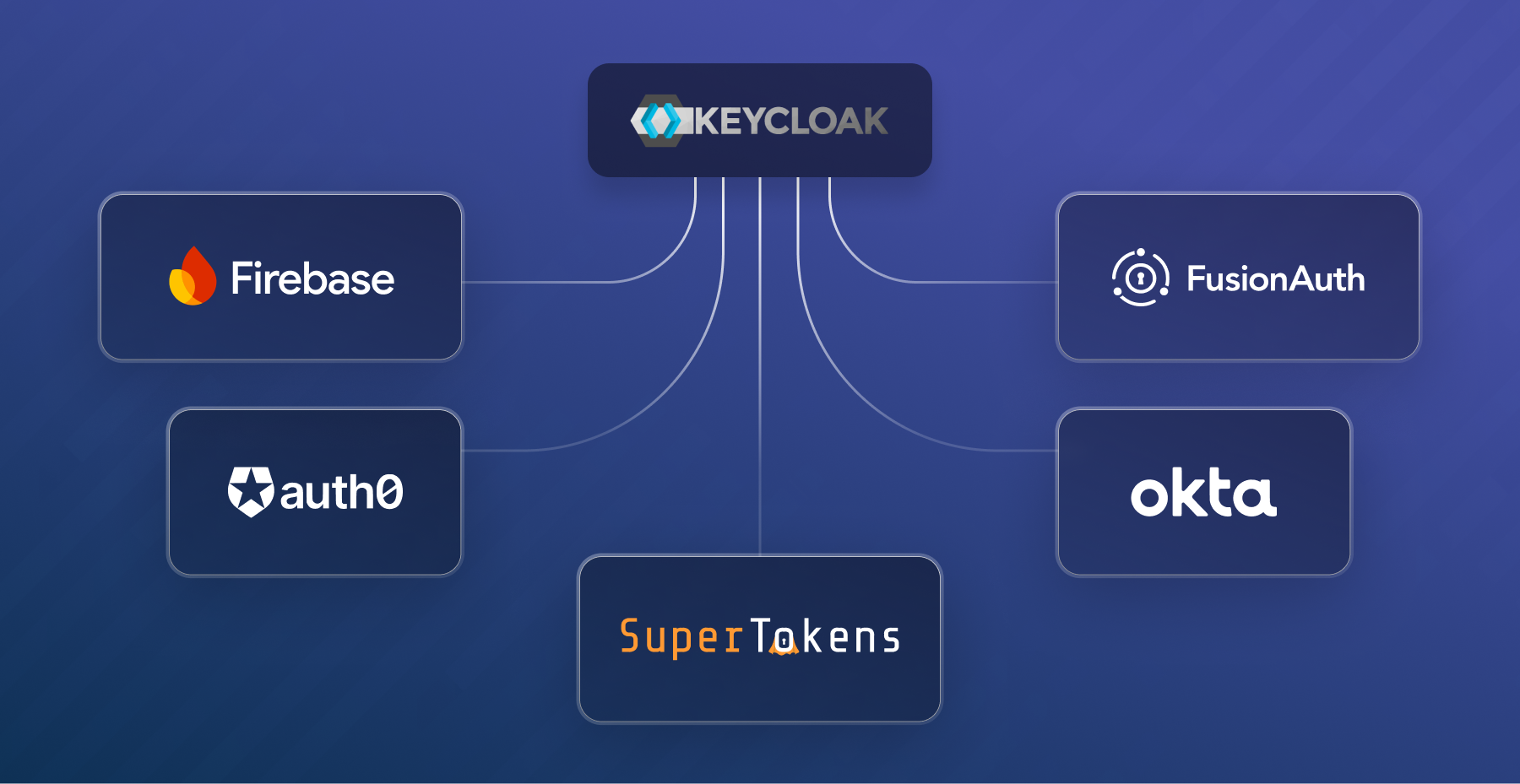Table of Contents
- Comparing Keycloak Alternatives For Simpler User Authentication
- Where Keycloak Works (& Where It Doesn’t)
- Understanding Your User Authentication Needs
- Keycloak Alternatives For Simpler, More Flexible Authentication
- Comparing Implementation, Features & Pricing: Keycloak Alternatives
- When To Build Your Own Security Flow Vs. Choose Ready-Made Software
- Streamline & Simplify User Access with SuperTokens
Introduction
When it comes to user authentication, we developers have to pick the right tools to ensure users can access the software we build safely and easily. Keycloak is a popular option, but it might not always be the best choice. This article looks into some Keycloak alternatives, helping you find potentially better-suited and more flexible ways to handle user authentication.
Where Keycloak Works (& Where It Doesn’t)
Keycloak excels in providing a comprehensive suite of authentication features, including single sign-on (SSO), identity brokering, and user federation. User federation, a key feature of Keycloak, allows you to manage users from multiple sources, such as LDAP or Active Directory, in a single location. It’s highly customizable and supports protocols like OAuth2, OpenID Connect, and SAML.
However, Keycloak’s complexity can overwhelm smaller projects or teams without dedicated DevOps resources. Its setup and maintenance can be time-consuming, and scaling it to meet high traffic demands often requires significant infrastructure investment. Additionally, while Keycloak has an active community and extensive documentation, the learning curve can be steep for newcomers.
Understanding Your User Authentication Needs
Before diving into alternatives, assessing your project’s specific authentication requirements is crucial. Consider factors such as:
- Project size and scope: Smaller projects may not need the extensive features Keycloak offers.
- Development resources: Do you have the expertise and time to manage a complex authentication system?
- Scalability: Will your authentication solution grow with your user base?
- Customization needs: How important is tailoring the authentication experience to your users?
For instance, understanding the difference between authentication and authorization can help clarify your project’s needs.
Keycloak Alternatives For Simpler, More Flexible Authentication
Here are some alternatives to Keycloak that offer a balance of simplicity, flexibility, and robust features:
- SuperTokens: Designed for simplicity and security, SuperTokens provides pre-built UI components and customizable options. It supports session management, multi-factor authentication (MFA), and social logins. It’s also open-source and can be self-hosted.
- Auth0: Auth0 is a popular choice for its ease of use and extensive documentation. Auth0 offers a wide range of integrations (SSO, social logins, passwordless) and a user-friendly interface. Its high pricing can make it tough decision.
- Firebase Authentication: Ideal for projects already using Google’s ecosystem. It offers straightforward setup and integration with other Firebase services. It’s documentation can be hard to parse and has limited customization options.
- Okta: Known for its enterprise-grade features and strong security measures. Okta is suitable for large organizations needing advanced identity management capabilities.
- FusionAuth: This is a developer-friendly solution that focuses on customization and flexibility. It supports a wide range of authentication protocols and provides a self-hosted option.
Comparing Implementation, Features & Pricing: Keycloak Alternatives
When evaluating these alternatives, consider the following aspects:
- Ease of implementation: How quickly can you integrate the solution into your project?
- Features: Does the tool offer the authentication methods and security measures you need?
- Pricing: Evaluate the cost based on your project’s size and growth projections.
- Support: What level of customer support and documentation is available?
| Tool | Ease of Implementation | Key Features | Pricing |
|---|---|---|---|
| SuperTokens | Quick setup, customizable, Developer-friendly | Pre-built UI, MFA, social logins, FOSS and self-hosted option | Free tier, usage-based plans |
| Auth0 | Developer-friendly, extensive docs | SSO, social logins, passwordless authentication | Free tier, scalable plans |
| Firebase Auth | Simple integration | Google services integration, social logins | Pay-as-you-go |
| Okta | Comprehensive setup | Advanced security, SSO, enterprise features | Free tier, enterprise plans |
| FusionAuth | Developer-friendly | Wide protocol support, self-hosted option | Community edition, paid plans |
When To Build Your Own Security Flow Vs. Choose Ready-Made Software
When deciding between building a custom authentication solution or opting for ready-made software, it comes down to your project’s unique needs:
- Build your own: If you need complete control over the authentication flow, have unique requirements, or possess the necessary development resources, building your own might be the best option. This approach offers maximum flexibility but can be time-consuming and costly. Multi-Tenancy considerations for 2024 also play a role in this decision.
- Choose ready-made: For most projects, ready-made solutions like SuperTokens, Auth0, or Firebase provide a faster, more reliable path to secure authentication. These tools offer robust security features and ongoing support, freeing your team to focus on core product development. For tips on enhancing user authentication experience with custom UI, you might find this guide on Creating Great Authentication Experiences with Custom UI helpful.
Streamline & Simplify User Access with SuperTokens
SuperTokens offers a streamlined approach to user authentication, combining ease of use with powerful features. Whether you’re integrating social logins, implementing MFA using best practices, or managing user sessions, SuperTokens equips you with the tools you need to enhance security and user experience, all in a straightforward manner.
By understanding Keycloak’s strengths and limitations and its alternatives, you can make an informed decision that aligns with your project’s needs, ensuring a secure and user-friendly authentication experience.

